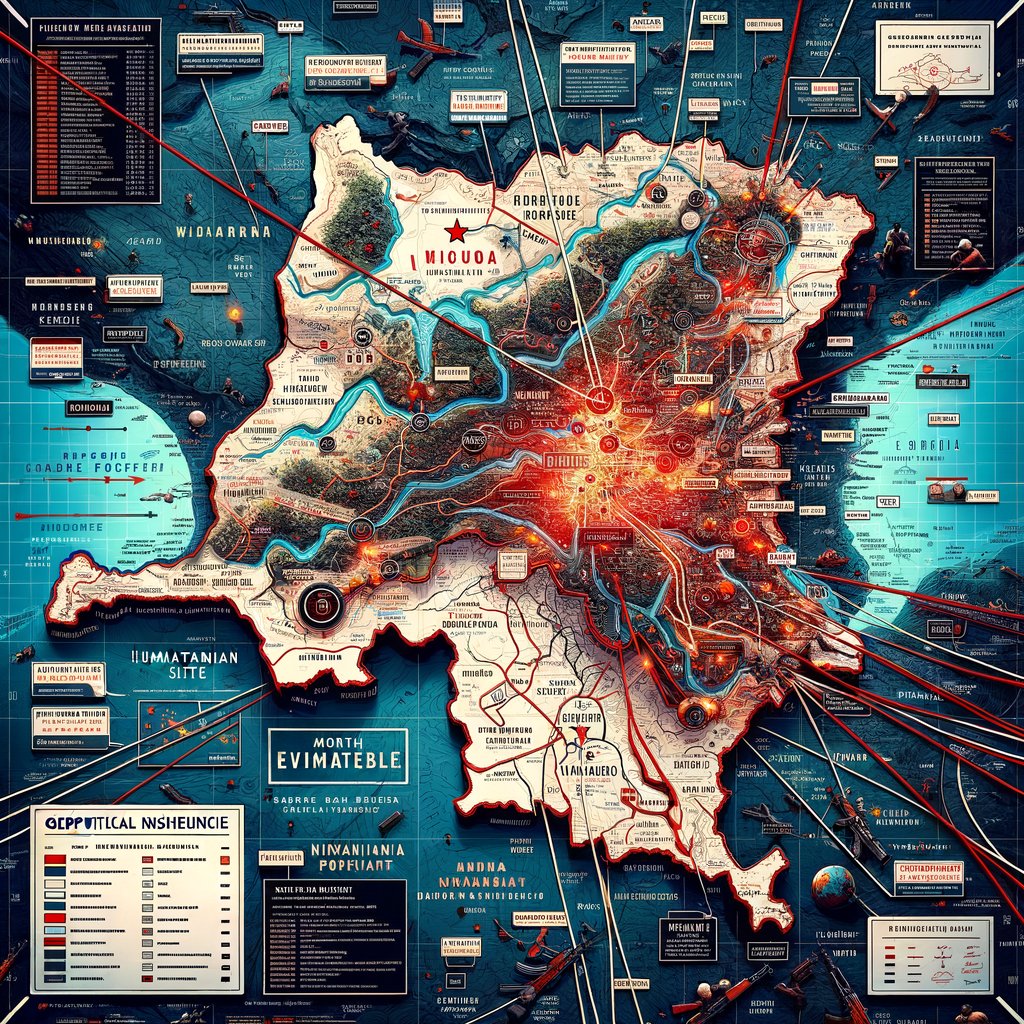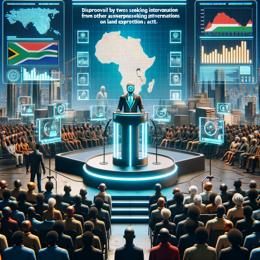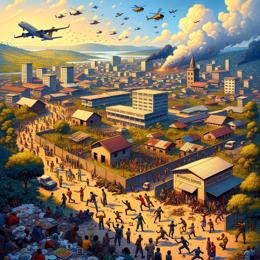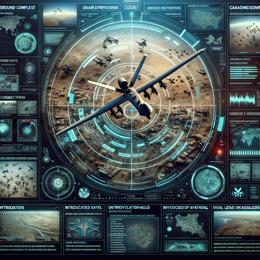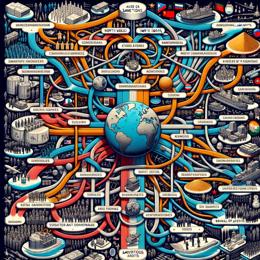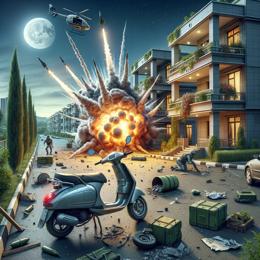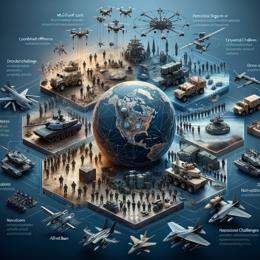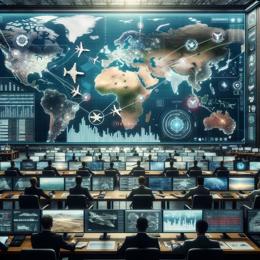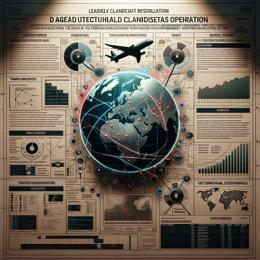Image created by AI
M23 Leader Bertrand Bisimwa Asserts Defensive Stance in Ongoing DRC Conflict
The M23 rebel group in the eastern Democratic Republic of the Congo (DRC) is once again at the forefront of regional instability, having resumed their armed struggle in 2022 after a dormant period. According to Bertrand Bisimwa, the head of M23's political wing, their resurgence is a reactionary measure against long-standing ethnic persecution and governance failures by the Congolese government towards the minority Tutsi community, a group with historical ties to Rwanda.
Background tensions have been exacerbated by accusations from Kinshasa and international entities like the United Nations, which allege that Rwanda is supplying M23 with resources—an accusation that Rwanda vehemently denies. This geopolitical tension underscores a complex web of regional relations that affects not only politics but also the lives of millions.
The conflict, centered predominantly in North Kivu province, continues despite several attempts to foster peace through international mediation and ceasefires agreements, including the efforts seen in the Nairobi peace process and the more recent Angola-mediated talks. However, operations on the ground dramatically escalated in late 2022, with M23 making significant territorial advancements.
Bisimwa’s narrative emphasizes that M23's military campaigns are acts of self-defense, necessary to protect those targeted by alleged state-endorsed violence and discrimination. He refutes claims made by international observers and the DRC government that M23's operations are expansionist, underscoring that their military actions are merely responses to aggressive maneuvers from government forces.
Intriguingly, Bisimwa also highlighted that the M23 movement was excluded from crucial discussions in Nairobi in April 2022, dampening hopes for a peaceful resolution. Kinshasa's dismissal of M23 from dialogue channels underscores a dismissal approach to what the rebel group stipulates are legitimate grievances—issues rooted deep in the region's socio-political fabric.
On the humanitarian front, the conflict has displaced nearly two million people, according to UN figures, creating a substantial humanitarian crisis in an area already marred by chronic instability. Bisimwa argues that M23 governance in territories they control has led to the return of displaced families and stabilization in those regions—an assertion that faces skepticism amidst the broader context of the group’s forceful military tactics.
Furthermore, M23’s involvement in protecting Virunga National Park, a biodiversity hotspot and UNESCO World Heritage site, has introduced an environmental angle to the ongoing strife. Bisimwa claims M23 has halted illegal activities like poaching and charcoal production, which were rampant under different armed groups’ control, including elements of the Congolese army.
As this complex conflict continues, with its interplay of ethnic rights, international diplomacy, and regional security, the dialogue seems to remain the elusive key to a durable peace. The situation in eastern DRC remains volatile, with each stakeholder pulling towards divergent resolutions that reflect the area's tangled web of conflicts and interests.
